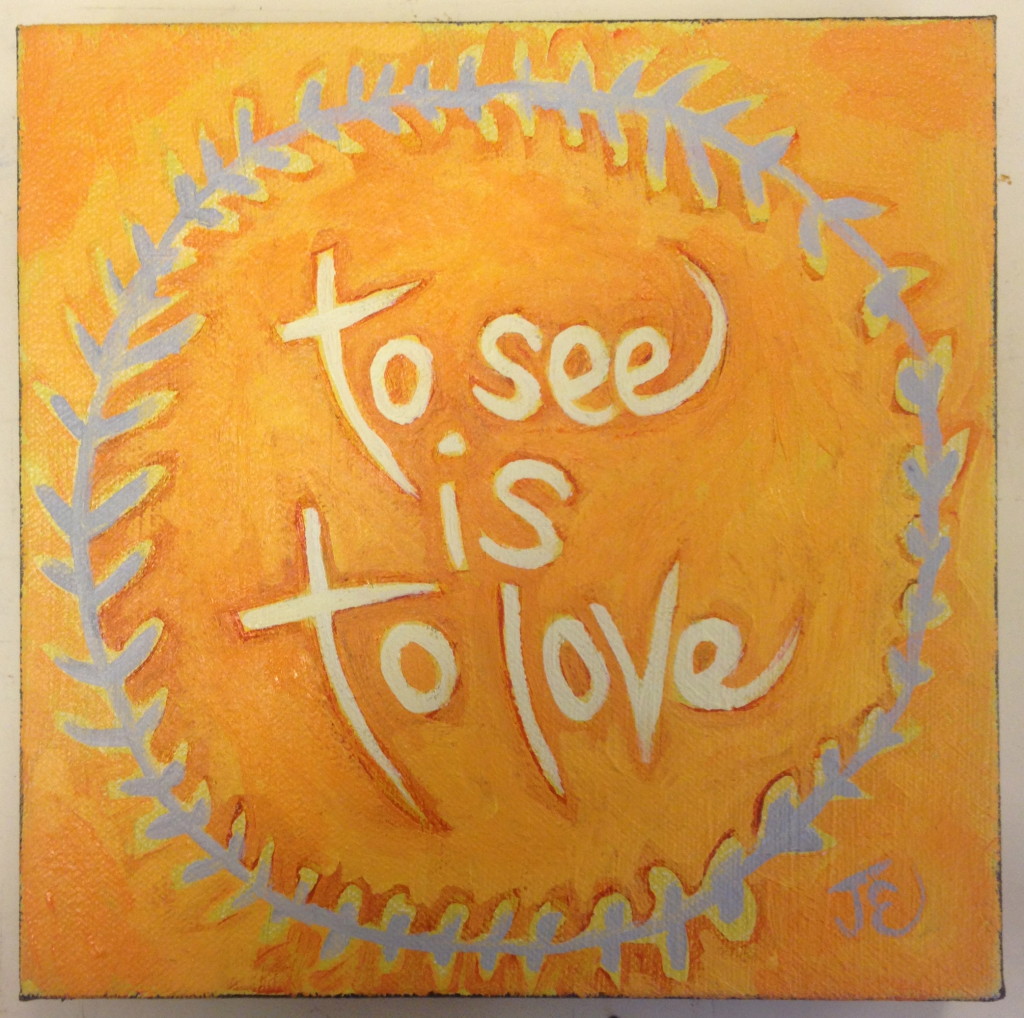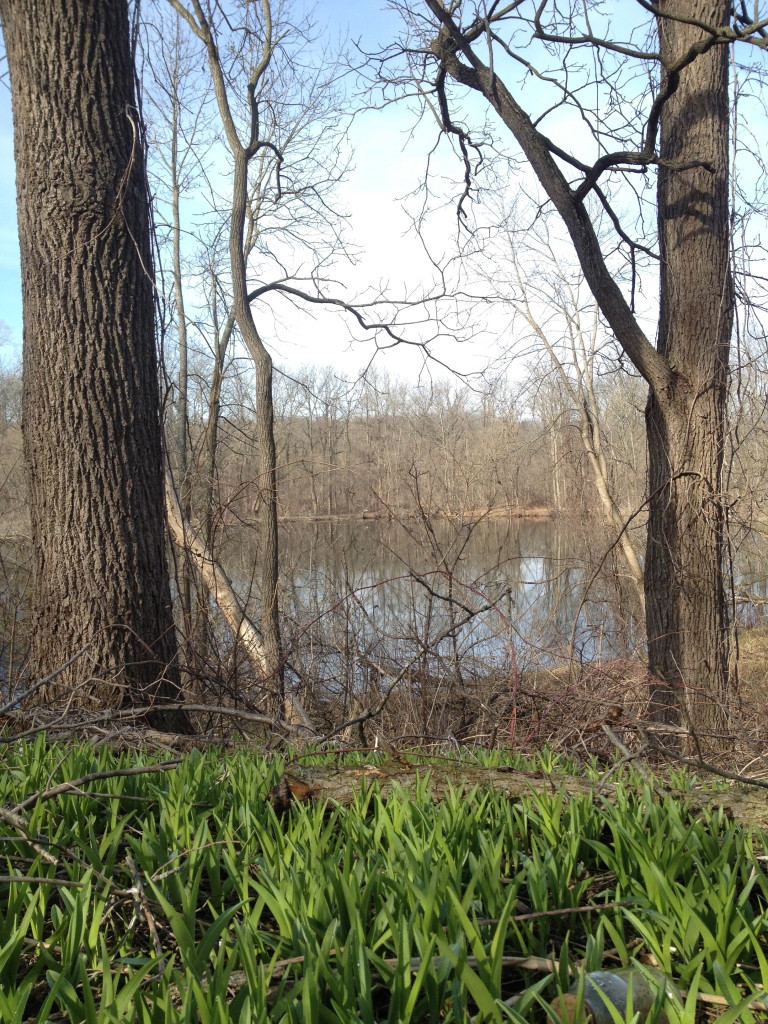 Often, when I put the kitty litter to the curb, I think of a man I met at the St. Catharines General Hospital a long time ago. I was in emerge for a bee sting on my finger that had swollen up so much that my left hand looked like it belonged on a Cabbage Patch kid. The doctor had drawn a line on my arm with his pen and said if the swelling goes past here, then come in immediately. That was a few days previous.
Often, when I put the kitty litter to the curb, I think of a man I met at the St. Catharines General Hospital a long time ago. I was in emerge for a bee sting on my finger that had swollen up so much that my left hand looked like it belonged on a Cabbage Patch kid. The doctor had drawn a line on my arm with his pen and said if the swelling goes past here, then come in immediately. That was a few days previous.
I was in the waiting room, waiting. Across from me was a scruffy man, rather lanky yet muscular with rough and calloused hands. He had deep-set grooves in his face and a dark, thick-looking tan, the kind you would see on people in the Deep South. He and I were very different people. One thing I know about an emergency room – you need to make peace with the idea that you may be there for a while, so it’s best to make a few friends to help pass the time.
I asked the scruffy-faced man, so, what do you do
He was a Garbage Man.
I found out, first of all, it’s “Sanitation Engineer”, not Garbage Man. I said I was thrilled with the idea of having a conversation with an engineer. He laughed and rolled his eyes. “I still call myself a garbage man.” he said. I told him I was a “Botanical Engineer” but he could still call me a florist. We laughed about our titles and moved on. I asked him about the most interesting bit of garbage he’d put in his truck.
“The best stuff comes from Lakeshore Road by Lake Erie.” How many times had he collected perfectly good toasters and other fine appliances from this stretch of road. “It’s a gold-mine down there”.
“Isn’t that stealing garbage?” I asked him. “I think that’s illegal”.
“Well, yes,” he said, “but there’s got to be something illegal about throwing out perfectly good stuff.” He told me what he doesn’t keep for himself he takes over to the pawn shop in Fort Erie and spends the cash at the local pub. “No use throwing away good stuff” quietly adding “rich people” under his breath. I said there’s got to be some perks for such a hard occupation, so I guess there’s no harm, and yeah, I get it. Rich people. I hoped he didn’t think I was one of them.
He continued. “Aw, it’s not so bad. Mostly, it’s a good job, except for when you come across kitty litter. You can’t tell from the outside of the bag what’s inside the bag, and most of the time, garbage is garbage – it has a predictable weight. But, if there’s kitty litter in there, you won’t know until you’re grabbing the knot and go to heave it into the truck and it weighs a ton. If you get a tear in the bag, it’s goes spraying everywhere. I know guys who’ve hurt their shoulders from slinging kitty litter. So ya, I’d say, we have to look out for that, mostly. Everything else is just regular garbage.”
I told him I have a cat and put kitty litter out to the curb and from now on I will remember him when I do.
“There’s a woman on Lakeshore who won’t put out all of her garbage ahead of time. Not in the summer, anyway. She waits until the truck is on it’s way (you can hear it from pretty far-off) and makes us stand around while she saunters down the drive with a little bag in her hand. Normally, we’d just drive off, but this woman is worth the wait. She walks real slow in a bikini and high heels. We just stand and watch. It’s a nice little show for us. So that there’s a perk to the job, I’d say.”
Ever since that most-enlightening conversation with the Garbage Man Sanitation Engineer, I often wonder what stories are hidden in people, if only I asked. How many times have I been completely shocked at the assumptions I’ve made based on someone’s appearance or manner of speaking. At times, the most quiet and ordinary of people turn out to be the ones with the best stories. How many times have I simply “not asked”? Even my own family. You never know who somebody is or how interesting they are until you ask.
Hello! Who are you?
Wouldn’t it be great if we could skip the surface conversation and get right to the heart of the matter? I have always suffered from an immense aversion to smalltalk. How could I possibly truly care about how you are if I haven’t the slightest clue who you are?
One time I conducted an experiment and decided to answer the question “How are you?” with raw, real honesty. For a short time I replied with a report on my emotional status, physical ailments and momentary state of mind. It went something like this:
“How are you?”
“I’m glad you asked. I’m feeling rather overwhelmed today. I was wondering what are the five stages of grief. Or is it seven? I can’t recall and it’s making me crazy. Also, I seem to have a bit of gout in my left foot which is causing me limp a bit. Although, it’s not too bad. I shouldn’t complain and yet, I do.
Responses were, at best, unsatisfying and, at worst, extremely awkward, usually ending abruptly with me asking the question I abhor “ And how are you?” Then we’d part ways, all parties feeling a little assaulted.
Perhaps it was unfair to conduct a social experiment in the first place. Perhaps I should start accepting the social norms of our society. I need to understand most people really don’t care about how other people are. “How are you?” is just an empty question which deserves an empty answer and that’s fine. If this is how our society stays civil and keeps people from killing each other, I’m all in.
One time I heard a documentary featuring the author Charles Montgomery who wrote a book called “Happy City”. (http://www.cbc.ca/books/2014/09/happy-city-transforming-our-lives-through-urban-design.html) He talked about how cities can be designed to help us, as people, to be happy. Turns out the happiest neighbourhoods in the world all have one commonality. A town centre. A place where all the streets intersect. That’s all. Just a place for the community to wander in and out of on a daily basis, bumping into each other, asking each other questions such as “How are you Mrs. Smith? Oh, I’m just fine, thank you.” A place where you see familiar people every day and talk about nothing at all.
Apparently, that’s the secret to happiness.
I couldn’t be more unsettled about this bit of news; it seems as though happiness has nothing to do with depth of conversation, but everything to do with superficiality.
I’ve thought about this a bit (actually a lot) and haven’t come to any conclusion, but I wonder if a town centre helps you feel less invisible. Montgomery also talked about our need for community. I like to think that, in a community, a person can become known, mainly because you bump shoulders so often. With enough interactions, it’s possible to develop a depth of knowledge about the people around you. Not exactly intimate, but if you went missing or died in your sleep, people would notice and they might even know how to find you.
I met a man who told me it had been years since any of his family had asked him how his work was going or about anything else important in his life. He was saddened by their general lack of interest. He admitted there’d been nothing ground-breaking in a long while; work was steady. Nothing exciting enough to just blurt out. He doesn’t want to be a bore talking about himself, but yes, it would still be nice if someone showed interest.
I wonder if the man was sad because he felt unnoticed or maybe even invisible. He said it would be nice if someone asked him something, sometime. The solution seems so simple and straightforward.
Not that long ago I heard a great little phrase: To see is to love.
To see is to love. Could it be that to listen is to love? Or to ask a question is to love?
Opening ears and eyes and heart … is to love?
The pendulum swings wildly back and forth, creating extremes – always seeking a balance. It used to be that I didn’t speak at all. Perhaps I didn’t feel my voice had a place in the world. Old habits, especially emotional ones, are hard to let go of. I, like the sad man, am still very sensitive to the horror of not being interesting. These days, I’m keenly aware of speaking too much. I’m exploding with bottled up questions and thoughts and stories.
I have to admit, I don’t know how to do this listening thing very well. Worse, is question-asking. More than anything, I want to be seen and known, to not be misunderstood. I forget that everyone else around me is seeking the same outcome. We are all trying to explain ourselves to our world. I’m writing and talking and talking and explaining, almost frantically. The pendulum has swung very far.
I often forget there is a breathing out and a breathing in.
An exhale and an inhale. Speaking and listening. Expression and impression.
The Golden Rule is usually a reliable reminder of how to be. Treat others as you would wish to be treated. In other words, if I want to be listened to, I ought to listen to other people.
All this to say, I am trying to find a balance between speaking and listening.
Also, I’m trying to learn what it is to love, practically speaking. For now, I’m holding onto (and digging into … trying to understand) this beautiful phrase: to see is to love.
I’m also wishing Jordan Station had a Town Centre. We have the Post Office and that’s doing the job for now, but a Town Centre would be amazing. I think the orchard in the middle of town is for sale …
About the bee sting? It got better. I didn’t die. Thanks for asking!
———————————————————————————————————————
From the book “Happy City” by Charles Montgomery:
As much as we complain about other people, there is nothing worse for mental health than a social desert. The more connected we are to family and community, the less likely we are to experience heart attacks, strokes, cancer and depression. Connected people sleep better at night. They live longer. They consistently report being happier.
———————————————————————————————————————
P.S. Credit for the phrase “To see is to love” goes to Jack Gibb. (and Tim Arnold for bringing the phrase to my attention in the first place). Thanks!!!


Al Rempel
maybe not origin, but on straight Google (in quotes) on “to see is to love” I came up with this comment on Don Juan (!), in a 1976 book entitled “Personal Destinies: A Philosophy of Ethical Individualism” by David L. Norton:
https://books.google.ca/books?id=w2W1rlJu3AcC&pg=PA69&lpg=PA69&dq=%E2%80%9CTo+see+is+to+love%E2%80%9D&source=bl&ots=HTl9f4B1M_&sig=yXewk7M8as8N2Ql4kTKQPLtdMtc&hl=en&sa=X&ei=rBSvVM6iDYeiyAT734HwBw&ved=0CDwQ6AEwBQ#v=onepage&q=%E2%80%9CTo%20see%20is%20to%20love%E2%80%9D&f=false
also in this 1808 book, “Striking Likenesses; or, The Votaries of .Fashion” by Louisa Sidney Stanhope:
https://books.google.ca/books?id=0a8BAAAAQAAJ&pg=PA83&lpg=PA83&dq=%E2%80%9CTo+see+is+to+love%E2%80%9D&source=bl&ots=qag25AJP9M&sig=VTi-Smt6wER3BWsDoka-DPxfhTo&hl=en&sa=X&ei=rBSvVM6iDYeiyAT734HwBw&ved=0CEcQ6AEwBw#v=onepage&q=%E2%80%9CTo%20see%20is%20to%20love%E2%80%9D&f=false
this one seems to attribute it to Jesus, although I have not discovered where in New Testament something along this line may be:
http://themainblog.wordpress.com/2010/02/16/unpacking-%E2%80%9Ci-see-you%E2%80%9D/
Jennifer
Hi Al, I appreciate the third link you have listed – a reference to Avatar’s quote “I see you”. Since seeing the movie, I have held onto that saying as something very profound (and actually had thought of adding it to this blog entry). It’s another way of saying “I love you”, but with a freshness which makes it all seem more applicable.
Thanks for adding to the conversation!
Also, I have added a reference to the (probable) origin of my quote “To see is to love”.
J